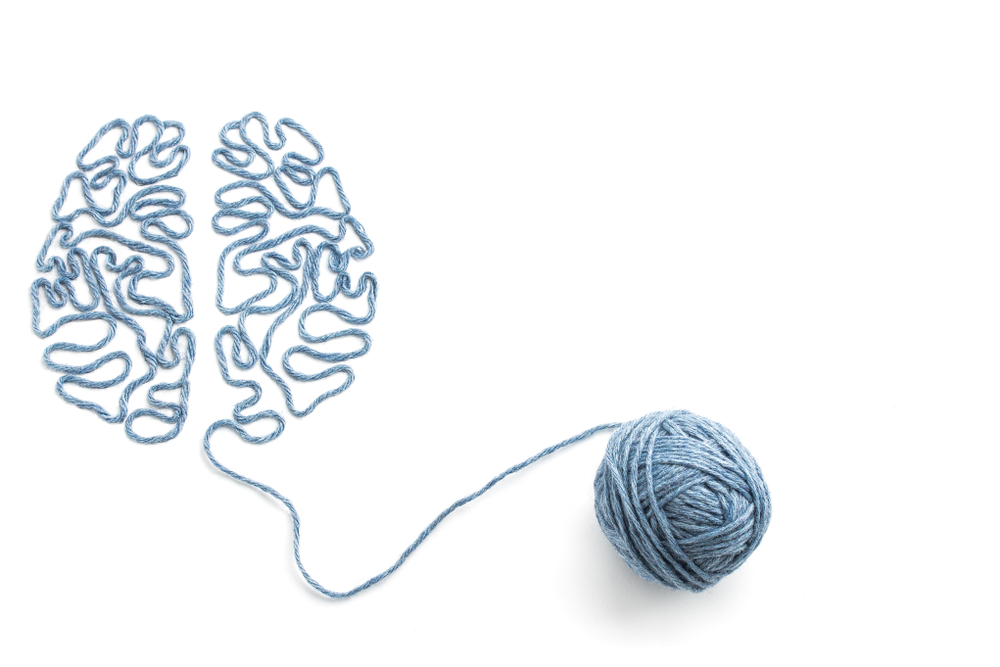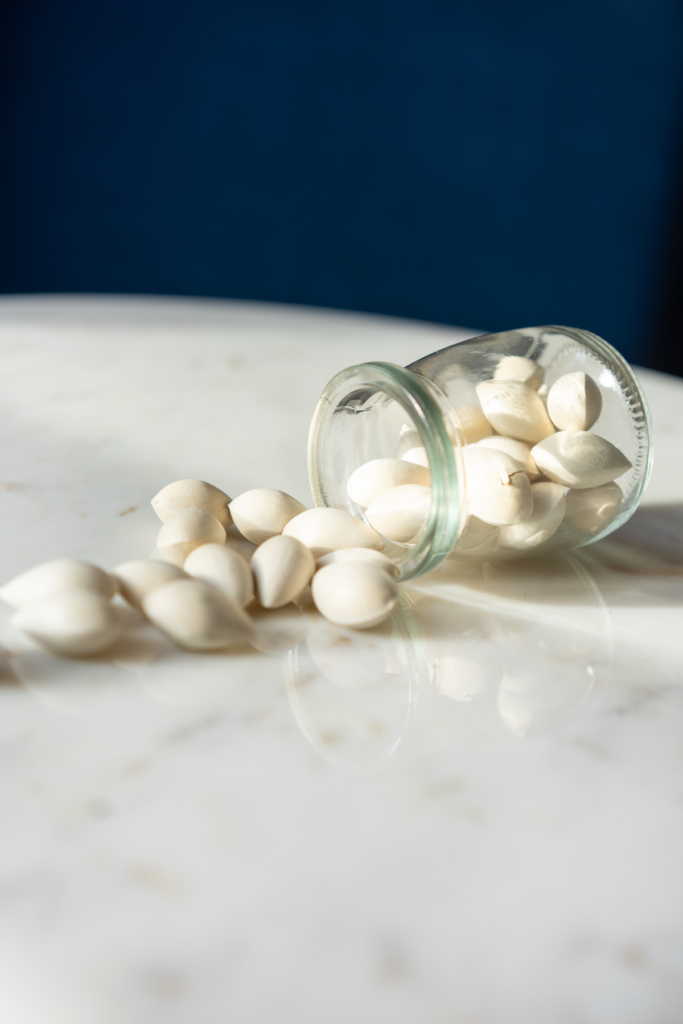PREVENT OR STOP MEMORY LOSS WITH EASTERN MEDICINE
Herbs, Acupressure & More

What were you doing on Saturday afternoon?
Do you remember what you ate for dinner last night?
Can you recite your best friend’s cell phone number without looking at your phone contacts?
If you couldn’t answer some of these without a good long think, don’t worry about it too much. As we get older, our short term memory gets worse–it’s a natural part of aging! But just because it’s natural doesn’t mean it’s inevitable. In fact, if you exercise your brain and keep your body healthy, you can slow down and even stop memory loss!
To help prevent memory loss, western doctors suggest staying active, challenging your brain with puzzles, sleeping enough, and opting for a protein-rich diet.
But like many things, Traditional Chinese Medicine has its own view and treatments for memory loss.
What Causes Memory Loss, According to TCM?
 Unsurprisingly, memory loss is associated with the brain in traditional Chinese medicine. But in TCM, every inch of your body is connected–it’s all part of one big system. So when it comes to memory loss, your brain isn’t the only organ that matters.In fact the brain is not considered a major organ, but more as a distributed system, while the physical brain is called the Sea of Marrow, like the marrow in your bones.
Unsurprisingly, memory loss is associated with the brain in traditional Chinese medicine. But in TCM, every inch of your body is connected–it’s all part of one big system. So when it comes to memory loss, your brain isn’t the only organ that matters.In fact the brain is not considered a major organ, but more as a distributed system, while the physical brain is called the Sea of Marrow, like the marrow in your bones.
In fact, TCM practitioners will often look at the Kidney and Spleen when there are signs of memory loss. The Spleen manages both blood and Qi, the essential lifeforce. By sending these to the brain, a healthy Spleen keeps your thoughts and memory strong. But watch out, because the Spleen can be damaged by overthinking, stress, phlegm and eating unhealthy foods.
The Kidney and Spleen also control the water in your body. When there’s too much moisture in your body, the dampness cooks down to create phlegm. Built-up phlegm and poor blood circulation can make it harder to learn and retain things. Too much phlegm leads to symptoms like difficulty thinking, nausea, and extreme sleepiness. Your Kidney is especially vulnerable to the effects of aging, but feelings of fear can also damage it.
How To Keep Your Brain Healthy and Prevent Memory Loss
Here’s the thing–there’s no guarantee that you can prevent memory loss or make it better once it happens. Our brains and memory are super complicated, and western and easter medical traditions alike don’t know everything about them.
But all medical traditions agree that there are certainly some things you can do to give your brain a fighting chance as you age.
Hit the Sheets
 In TCM, whenever we want to improve learning, we try to send more Qi to the brain. As the essential life force that flows through everything in the world, Qi helps to power our brains and keep our systems balanced.
In TCM, whenever we want to improve learning, we try to send more Qi to the brain. As the essential life force that flows through everything in the world, Qi helps to power our brains and keep our systems balanced.
One way to nourish the mind and keep Qi flowing is actually pretty simple–all you need to do is take a midday snooze. Yup, you read that right! Taking a nap in the middle of the day is an easy way to prevent memory loss and keep your brain nourished.
That’s because the middle of the day is associated with the heart in TCM, so napping during this time is especially good for that organ. In turn, the heart helps the brain detox and recharge. You can unconsciously process everything that happened to you so far that day and reduce feelings like worry and fear that damage the brain.
But daytime sleep isn’t the only kind that can help your memory. Studies show that getting enough sleep at night–especially deep sleep known as REM–is linked to creating memories and processing information. So don’t put all your eggs in the nap basket, and make sure to get plenty of rest every night. If you’re having trouble sleeping, check out this blog.
DIY Acupressure
 TCM is all about the mind-body connection, so it should come as no surprise that you can help your brain health by manipulating your body. Acupressure works by clearing the pathways (known as meridians) that let Qi flow through your body. Here are some easy ways to use acupressure to prevent memory loss and keep your noggin healthy:
TCM is all about the mind-body connection, so it should come as no surprise that you can help your brain health by manipulating your body. Acupressure works by clearing the pathways (known as meridians) that let Qi flow through your body. Here are some easy ways to use acupressure to prevent memory loss and keep your noggin healthy:
-
- Yintang Acupressure: Yintang acupressure and acupuncture focuses on the spot between your eyebrows in the center of your head. In Hindu tradition, this is where your third eye is. Massaging or applying pressure to this point can help clear your mind, lower your stress, and improve your brain function.
- Scalp Massage: Have you ever had a really good scalp massage at a spa or your hairdresser? It’s such an incredible feeling because the muscles up there hold so much tension and rarely get any TLC. But scalp massages don’t just feel amazing–they can also be amazing for your memory and brain function! In fact, studies show that scalp massages can help improve your short-term and long-term memory. Sounds like a win-win to me!
- Heaven’s Pillar: If you want to boost blood circulation in your brain, the heavenly pillar is the perfect acupressure point to hit. It’s located at the base of your skull on either side of your spine. Put your pointer and middle fingers here and massage away. It’s also great for your neck if you spend a lot of time hunched over screens!
Herbs To Help With Memory Loss
Ginkgo
Ginkgo Biloba leaf one of the most popular herbs. It’s used for many things, but has been specifically used for memory loss since the 1960s. Contrary to public belief, only the nut of the gingko tree is used traditionally in Chinese Medicine, while the leaf was discovered in the 1960s by French and German researchers.
Ginkgo’s secret weapon are antioxidants, which help to protect brain tissue against destructive free radicals. Some studies show it might even be able to stop or slow early Alzheimer’s disease! It also helps to improve circulation to the brain, bringing fresh blood and Qi to power up your noggin.
Ginseng
Ginseng is another popular TCM remedy for memory loss and dementia. Ginseng is packed with antioxidants and anti-inflammatories that keep your brain healthy. In one trial, healthy people who take Ginseng improved their concentration and ability to remember things they just learned.
Eleuthero
Functionally similar to the ginsengs, eleutherococcus is a popular herb taken by many Russians and Chinese to improve athletic strength, altitude sickness and memory.
Tea
Tea isn’t just for caffinating, it can also help keep your brain sharp as you get older! In fact, studies done on Japanese senior citizens show that elderly people who drink 2 or more cups of green tea a day are less likely to have their brain function decline. Green tea can help boost working memory in the short-term, and protect your dome from dementia in the long run.
There are some things in life that you just can’t control, and getting older is one of them. But even if you can’t stop yourself from getting older, you can give your body and brain the TLC they need to age gracefully.
If you’re worried about staying sharp as you get older, try these tips from eastern medicine to prevent or slow down memory loss. The sooner you start, the better, so what are you waiting for?!
Newer
5 Eastern Medicine Treatments for PMS
Older
5 Tips and Tricks To Boost Your Energy From Eastern Medicine
Comments (0)
Leave a reply
You must be logged in to post a comment.





